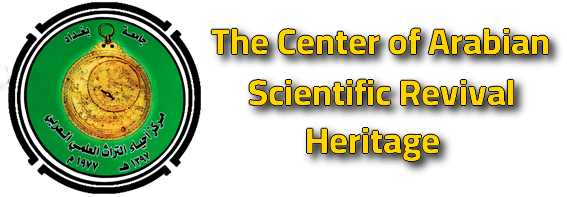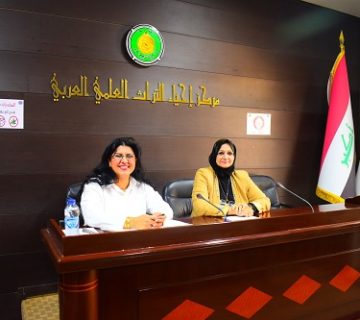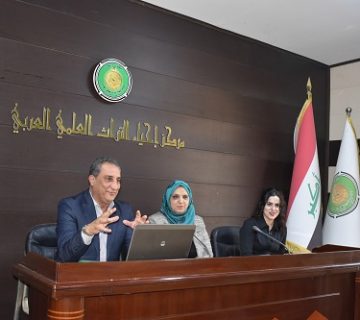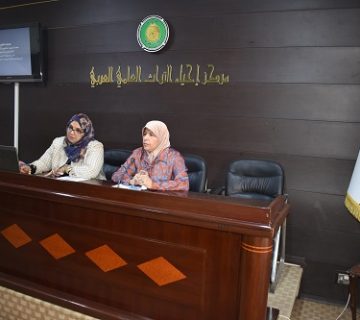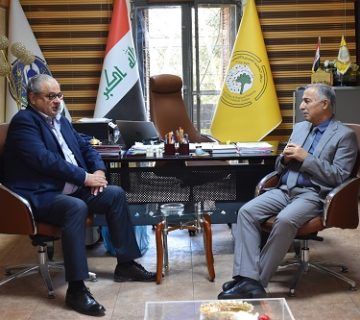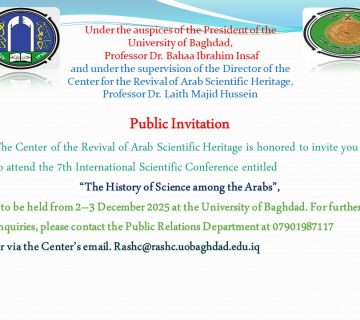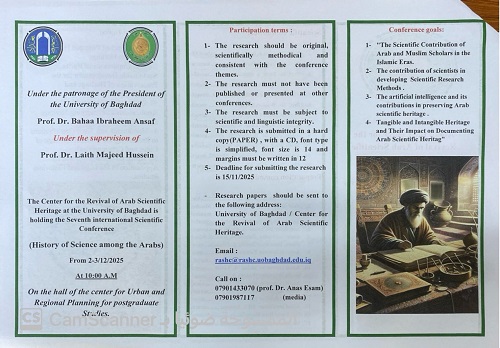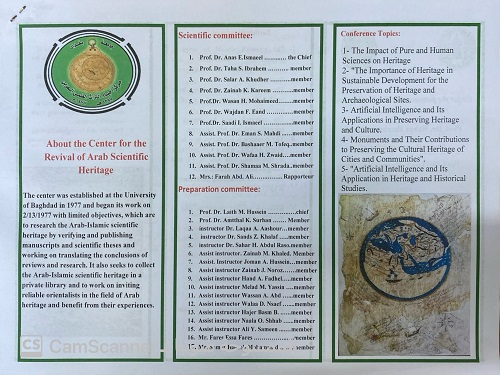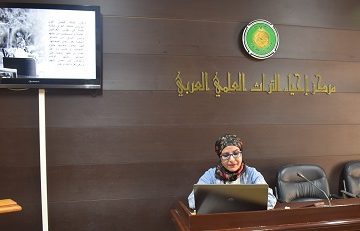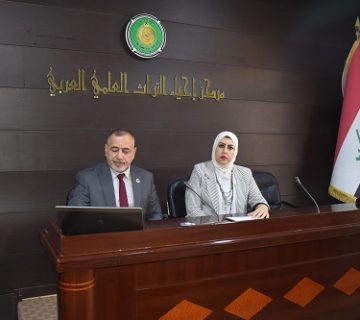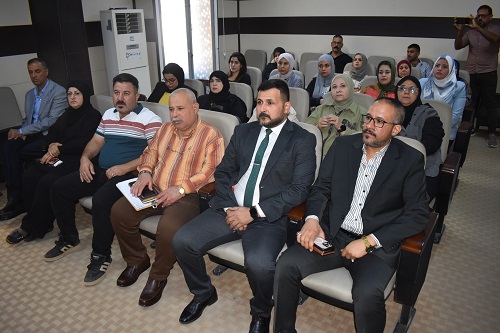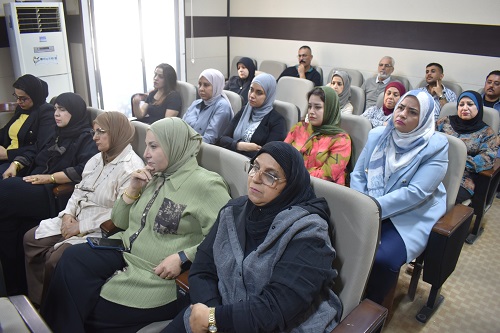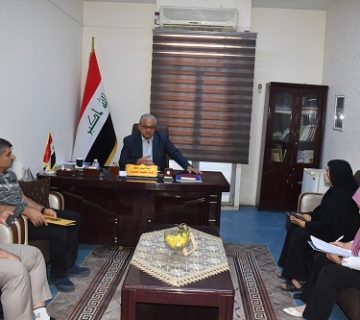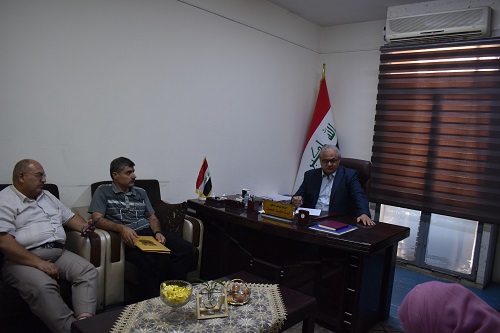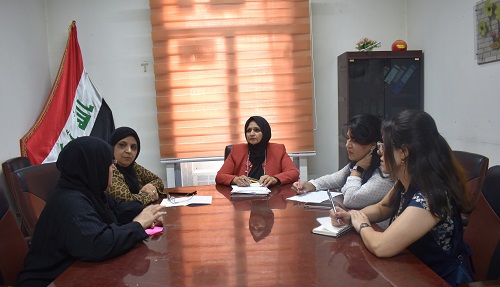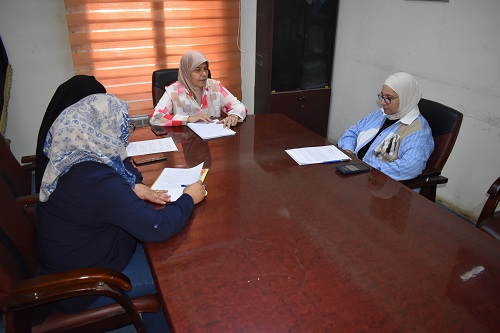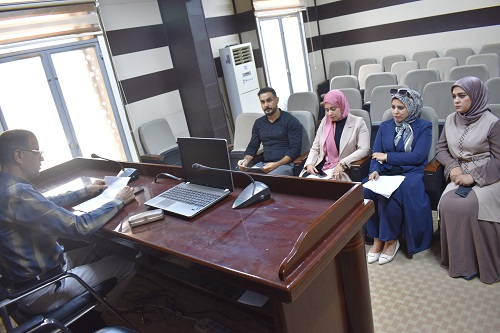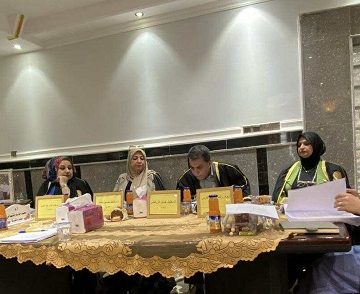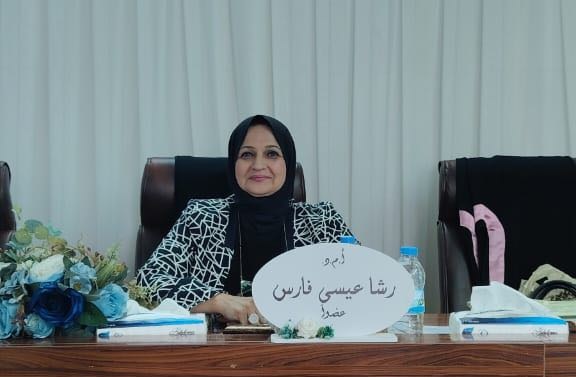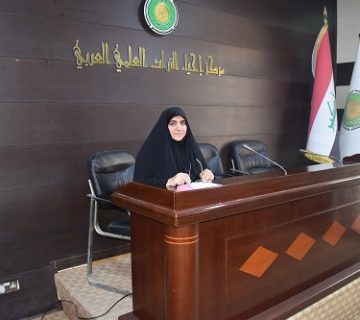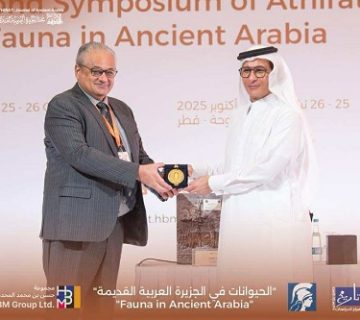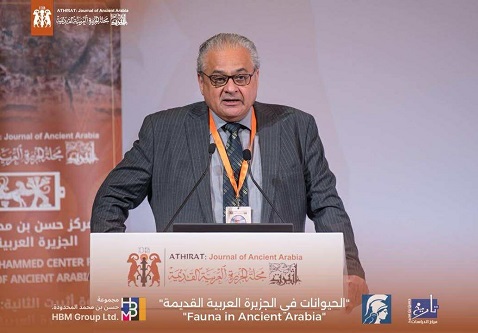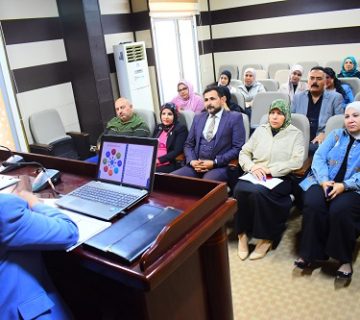
Workshop on Environment and Drinking Water
The Center for the Revival of Arab Scientific Heritage Holds a Workshop on Environment and Drinking Water
The Department of Human Studies at the Center for the Revival of Arab Scientific Heritage, University of Baghdad, organized a workshop on WednesdayNovember 2025, in Professor Nabeela Abdul Muneem Dawood Hall. The workshop was titled “Environment and Drinking Water: Between Heritage and Modernity” and was attended by a number of specialists and individuals interested in environmental issues. The session was chaired by Lecturer Dr. Sahar Hasan Abdul Rasool and presented by biologist Farah Hatif from the Environmental Studies Division.During the workshop, the researcher highlighted the importance of sustainable development and its role in preserving water resources, with particular focus on the sixth Sustainable Development Goal concerning clean water and sanitation. She emphasized that ensuring access to safe and clean water for all is a fundamental pillar of development in any society.
The workshop also reviewed traditional practices in water management and preservation across the ages, comparing them with modern technologies employed by contemporary institutions to ensure the quality and safety of drinking water. This comparison underscored the integration between traditional expertise and modern scientific knowledge.The workshop aimed to raise awareness about the importance of protecting water sources, promote positive behaviors in water consumption, and enhance societal understanding of environmental challenges related to the water sector. The researcher concluded with several recommendations, including the need to strengthen cooperation between governmental and community institutions to protect water resources, support projects that improve water quality, and expand awareness programs on sustainable water usage to ensure its availability for future generations. The workshop included several discussions on water safety and proper usage of non-potable water. At the conclusion, the Center’s administration thanked the researcher for her efforts, wishing her continued success and achievement.


